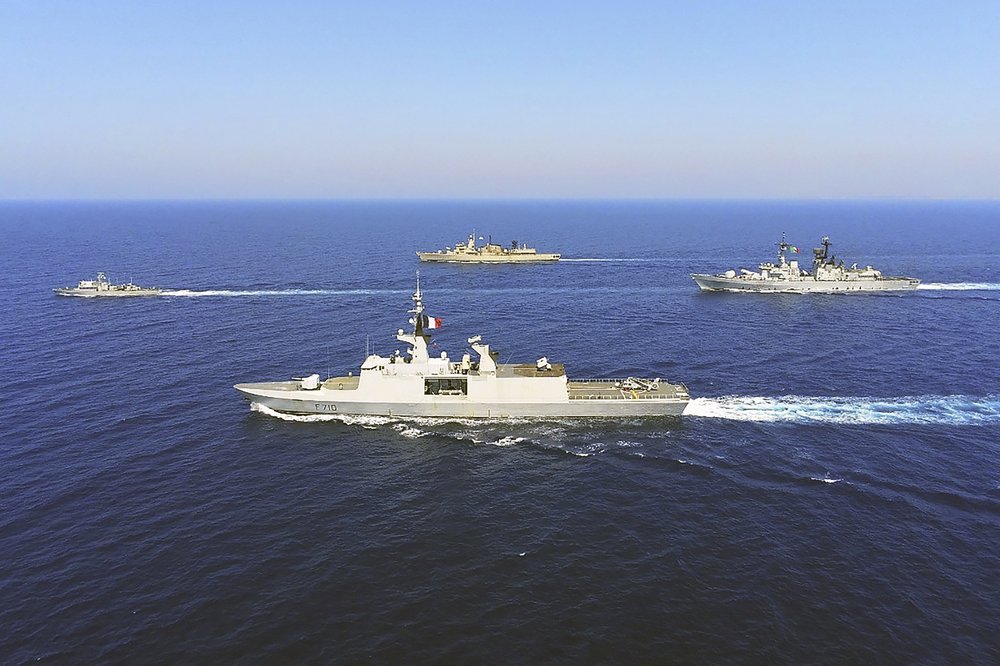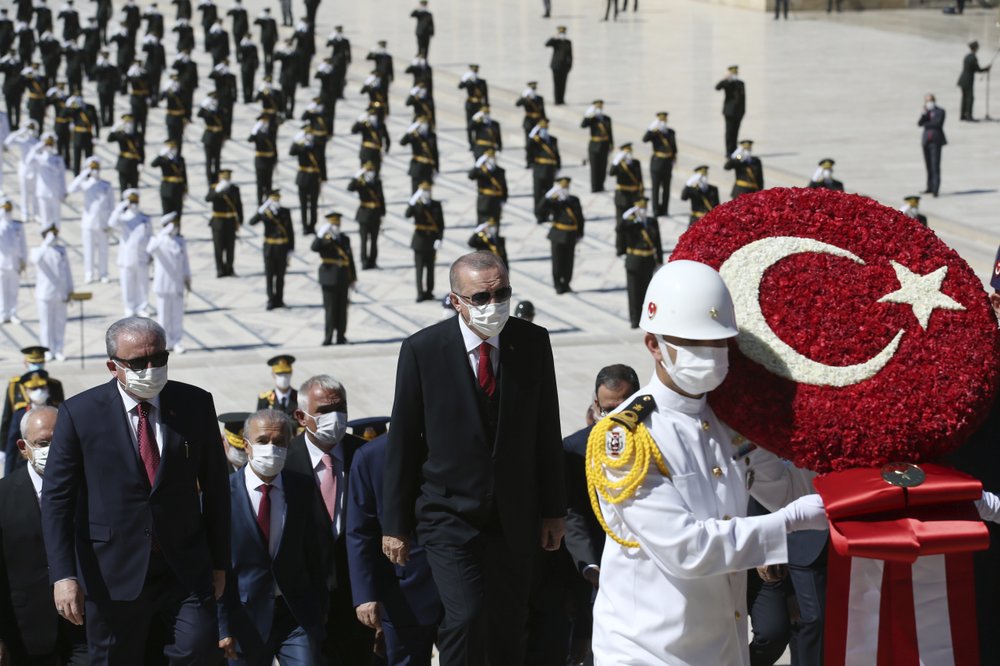Turkey said on Monday that its Oruc Reis exploration vessel will carry out seismic surveys in a disputed area of the eastern Mediterranean until September 12, provoking an angry response from neighboring Greece.
Turkey and Greece, NATO allies, vehemently disagree over claims to hydrocarbon resources in the area based on conflicting views on the extent of their continental shelves in the eastern Mediterranean water.
Both sides have held military exercises in this area, highlighting the potential for the dispute over the extent of their continental shelves to escalate.
The Turkish navy issued an advisory saying the Oruc Reis would continue working until September 12. It had previously been scheduled to work until September 1.
The advisory came after the European Union's executive earlier on Monday called for dialogue with Turkey and demanded that Ankara refrain from unilateral steps that stoke tensions in the eastern Mediterranean.
Should dialogue not bear fruit, a spokesman for the European Commission told a briefing on Monday, the EU has already moved toward sanctions.
Last week, 27 EU foreign ministers threatened Turkey with fresh sanctions – including tough economic measures – unless progress is made in reducing soaring tensions with Greece and Cyprus in the eastern Mediterranean.
"As well as sticks (sanctions), there will be carrots too to get Ankara to engage seriously in dialogue. These carrots could be progress on a new customs union and more money for the refugee program," a senior EU diplomat told Reuters.

Warships from Greece, Italy, Cyprus and France participate in a joint military exercise held from August 26-28, south of Turkey in the eastern Mediterranean Sea. /Greek Defense Ministry
Warships from Greece, Italy, Cyprus and France participate in a joint military exercise held from August 26-28, south of Turkey in the eastern Mediterranean Sea. /Greek Defense Ministry
Greece's foreign ministry called the advisory illegal and urged Turkey to ease tensions and work for stability in the region.
"Turkey continues to ignore calls for dialogue and to escalate its provocations," the ministry said in a statement. "Greece won't be blackmailed."
Greece will keep seeking maritime deals with its neighbors in the region, based on international law and the law of the Sea, the ministry added. Last week, Greece ratified an accord on maritime boundaries with Egypt.
The Athens-Cairo agreement is seen as a response to a Turkish-Libyan accord signed in 2019 allowing Turkey access to areas in the region where large hydrocarbon deposits have been discovered.
Under their treaty, Egypt and Greece are now allowed to seek maximum benefit from the resources available in an exclusive economic zone, including oil and gas reserves.
A similar accord between Italy and Greece was approved on Wednesday. Greek government spokesman Stelios Petsas on Thursday said "their ratification is urgent" given "Turkey's illegal activities."

Turkey's President Recep Erdogan, center, enters the mausoleum of Mustafa Kemal Ataturk, founder of modern Turkey, to mark the 98th anniversary of the decisive War of Independence battle against Greek forces in Ankara, Turkey, August 30, 2020. /AP
Turkey's President Recep Erdogan, center, enters the mausoleum of Mustafa Kemal Ataturk, founder of modern Turkey, to mark the 98th anniversary of the decisive War of Independence battle against Greek forces in Ankara, Turkey, August 30, 2020. /AP
Turkey's latest advisory referred to a specific exploration area. On Saturday, Turkish Foreign Minister Mevlut Cavusoglu said the Oruc Reis would continue working for the next 90 days as it moved gradually closer to the Turkish province of Antalya.
Seismic surveys are part of preparatory work for potential hydrocarbon exploration. Turkey has also been exploring for hydrocarbon resources in the Black Sea and discovered a 320 billion cubic meter gas field.
While the resource exploration is the immediate cause of the conflict in the eastern Mediterranean, a regional or geopolitical context that led to a more isolated Turkey can provoke a more assertive Ankara, which in turn, also exacerbates the conflicts.
Separately, Turkey also said it will hold a "gunnery exercise" off northwest Cyprus until September 11.
Two weeks ago, Greek and Turkish frigates shadowing Turkey's Oruc Reis oil and gas survey vessel collided, and Turkey's defense ministry said Turkish F-16 jets on Thursday prevented six Greek F-16s from entering an area where Turkey was operating.
On Monday, Greece's finance minister said that the country is ready to spend part of its cash reserves to support its armed forces.
(With input from agencies)